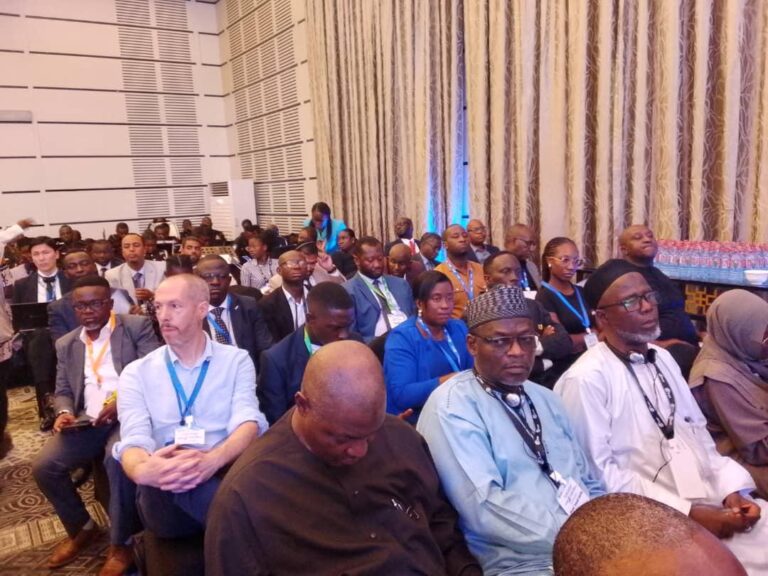Report By: Ishmael Barfi
The 10th-anniversary conference of the Africa Centers of Excellence (ACE) program concluded in Accra, Ghana, reaffirming the commitment to enhancing Africa’s capacity to compete in the global knowledge economy.
The conference gathered experts from various fields, including Artificial Intelligence (AI) and healthcare, to discuss the transformative impact of the ACE program on the continent.
In his closing remarks, delivered on behalf of the Minister for Education, Dr. Clement Apaak, the Deputy Minister of Education praised the ACE program for its significant contributions to strengthening postgraduate education and achieving real-world impact.
“I believe we have all been profoundly impressed by the exceptional quality of research, innovation, and diverse outputs presented during this program,” he stated.
He emphasized that “the evidence from the ‘Research to Enterprise’ session provided valuable insights into the transformative impact of our centers on the communities we serve, demonstrating tangible improvements in the daily lives of key populations.”
Dr. Apaak also expressed appreciation for the session on ‘Women in STEM and Leadership,’ noting that it energized participants and stimulated discussions on overcoming the barriers that women face in contributing to national development.
He underscored the importance of ensuring the financial sustainability of ACE centers, particularly as initial support from the World Bank comes to an end.
According to Dr. Apaak, sustaining and scaling the impact of the ACE program over the next decade is vital. This will require collective efforts to build on past successes and drive greater impact in the years ahead.
“We must continue to invest in research and development, particularly in areas aligned with our national priorities, and enhance advanced training programs to meet the evolving demands of our economies,” Dr. Apaak encouraged.
Experts at the final panel discussion, focusing on harnessing AI for healthcare transformation, highlighted AI’s potential in improving healthcare delivery, especially in low-resource settings.
They believe this can help address healthcare challenges, reduce costs, and enhance access to quality care.
The conference showcased high-quality research, innovation, and diverse outputs, illustrating the real improvements in the daily lives of key populations.
The session on ‘Women in STEM and Leadership’ aimed to dismantle the barriers faced by women in national development.
The ACE program has led to increased female participation in research, fostering a more inclusive and diverse academic environment.
This shift has resulted in a better understanding of the challenges women encounter in STEM fields and the development of targeted interventions to support their advancement.
The conference emphasized the need for collective efforts to build on past achievements and create a greater impact in the future.
Continued investment in research and development, aligned with national priorities, is essential for sustaining and expanding the ACE program’s impact.
Additionally, the conference highlighted the significance of public-private partnerships, industry engagement, and resource mobilization to ensure the long-term sustainability of ACE centers.
The ACE program has significantly strengthened postgraduate education and has made a real-world impact in critical fields.
The conference concluded with a call to action for stakeholders to continue investing in research and development, strengthen partnerships with industry and government, and mobilize resources to support the ACE program.
It also concluded with a renewed dedication to developing a highly skilled workforce, advancing cutting-edge research, fostering innovation, and transforming industries in Africa.
Source: www.thenewindependentonline.com








